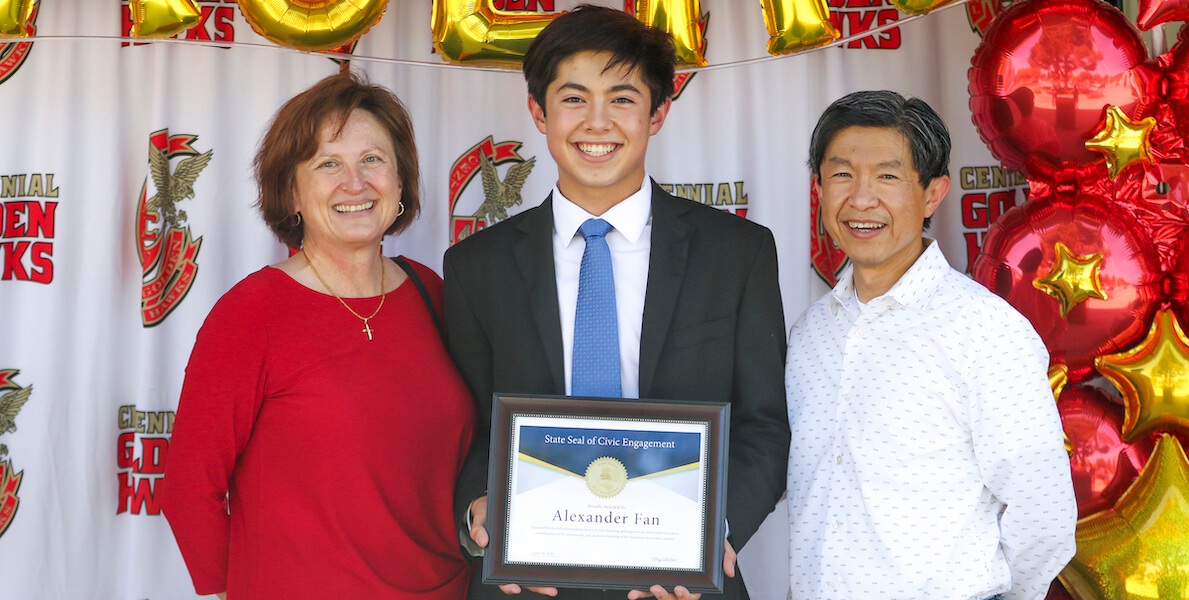Every year on Constitution Day, Penn’s Annenberg Center for Public Policy releases its annual survey of Americans’ civic knowledge, a look at what we do and don’t know about our democracy. For a couple years — when, as Annenberg’s Director Kathleen Hall Jamieson put it, “the branches of government were stress-tested” — things looked to be improving a bit.
This year, though, what Americans know about their civic life has fallen again to fairly horrific numbers: Only 47 percent of U.S. adults correctly named all three branches of government, down from 56 percent in 2021. Only 24 percent could name the rights guaranteed by the First Amendment. And 51 percent think Facebook (a private company) is required to abide by the right to free expression (it’s not). (See all the results here.)
As Jamieson put it in a statement: “When it comes to civics, knowledge is power. It’s troubling that so few know what rights we’re guaranteed by the First Amendment. We are unlikely to cherish, protect, and exercise rights if we don’t know that we have them.”
We are, clearly, a nation of people who know little about how our government works and what our rights are — which is likely related to the fact that we are also a nation of (many) people who are willing to overthrow that government and give up our rights. Our civic ignorance affects everything from idiotic statements from politicians, to denials about election results, to low voter turnout, low participation at public meetings, and a general distrust of institutions, whether they are deserving of trust or not.
“How do I read the news? How do I understand factual-based evidence? How do I know how things work? How do I talk to other people who may disagree with me in a respectful way? All those things have historically been a part of schooling, but have gotten overlooked,” says Hodgin.
Annenberg’s research has found that among those who knew the correct answers to their civics questions, one thing was predominant: they had studied civics in high school.
It’s no coincidence that voter turnout took a dive when schools stopped teaching civics, around the same time that states started mandating graduation exams for math, English and science — but not social studies. And it is no coincidence that when young people are taught to participate civically in their communities they are more apt to vote and more open to being active citizens, from showing up to running for office.
Supporting a healthy democracy
With this in mind, California and four other states have begun offering a State Seal of Civic Engagement to students who complete a series of criteria that range from studying how government works, to completing service projects and research papers that demonstrate an understanding of our participatory form of democracy. The goal is to instill in young people an understanding of how taking action — being engaged — is critical to citizenship in America.
“A number of challenges are in the spotlight in terms of empathy and political divisiveness, and people are really looking for ways to support a healthy functioning democracy,” says Erica Hodgin, co-director of the Civic Engagement Research Group at UC-Riverside, who has worked with several California districts. “Schools play a critical part.”
Pennsylvania doesn’t offer a state seal of civic engagement, but in 2018 Gov. Wolf signed into law Act 35, which requires every student to take a test of U.S. history, government and civics at least once during grades 7 to 12. The Act encourages teaching in three pillars — knowledge, skills and action — and offers toolkits to help teachers create curricula around those. The test, though, looks only at knowledge; it’s similar to the test given to immigrants before they become citizens, with multiple choice questions about how our government works, and an essay based on events in U.S. history.
In California, starting in 2020, the Civic Engagement Seal is an optional add-on for districts, and for students, who have to demonstrate skills and learning in five key areas:
-
-
- Be engaged in academic work in a productive way.
- Demonstrate a competent understanding of United States and California constitutions; functions and governance of local governments; tribal government structures and organizations; the role of the citizen in a constitutional democracy; and democratic principles, concepts, and processes.
- Participate in one or more informed civic engagement project(s) that address real-world problems and require students to identify and inquire into civic needs or problems, consider varied responses, take action, and reflect on efforts.
- Demonstrate civic knowledge, skills, and dispositions through self-reflection.
- Exhibit character traits that reflect civic-mindedness and a commitment to positively impact the classroom, school, community and/or society.
-
How districts execute the program varies: some put funding behind it; others weave it into existing programs. Anaheim Union High School District, for example, had long incorporated civic engagement projects into the curriculum at its Democracy Schools, which embed civic learning into every aspect of the day. Anaheim now gives every student the chance to earn the state seal, with teachers creating interdisciplinary lessons — English and science, for instance — that can help fulfill the criteria.
Fresno Unified School School District built the seal into its service learning graduation requirement. And in Salinas, Hodgin has worked with its Union High School District to think about how to create opportunities for civic learning before students reach 12th grade, when they qualify for the state seal. The district is now working to integrate civic learning projects into its ethnic studies requirement.
“We try to think with districts about how the adoption of the seal helps them think about their civic goals more broadly,” Hodgin says. To that end, she says, many districts created advisory committees with parents, students, community members and teachers to create goals and activities to make students eligible for the state seal — but that also have ripple effects on learning in general, and can serve a broader purpose in the community.
“How do I read the news? How do I understand factual-based evidence? How do I know how things work? How do I talk to other people who may disagree with me in a respectful way? All those things have historically been a part of schooling, but have gotten overlooked,” says Hodgin. Those are all critical components of civics learning.
In Philadelphia, this matters in ways that are particularly important. Hodgin says that research has shown that White and affluent students are more apt to get classroom-based and after school civics opportunities. That means Black and Brown students, those from poorer communities — the same people who are often disenfranchised in our system — enter adulthood with less understanding of how to advocate for decisions that affect their lives. That, in turn, gives them less power in our democracy.
“It’s important for all young people to feel like their voices matter, also to try things, form their own opinions, know how it impacts them and other people in their community,” Hodgin says. “When young people feel agency to become involved in society, if they feel it’s being supported in schools, feel their voice matters, that can build those lifelong habits and build patterns of empowerment and engagement.”
Community organizing as the best education
Locally, Hillary Do, a Central High School alum, is an example of what this can look like in real life. As a student, Do first learned what it means to be a civically engaged American in her “conflicts” class at Central. Formally called Contemporary Issues, much of the class involved reading the news and hashing out the meaning of justice with her fellow students. They then took those lessons to a nearby elementary school, where they shared what they had learned in a way the younger students could understand.
That spurred in Do more curiosity and more engagement with her city. While still in high school, Do volunteered for President Obama’s 2008 campaign. She and her friends protested and testified before the school board, outraged that 70 percent of polling places were closed during Covid, they showed up at a City Commissioners meeting — where they were informed that the Commissioners were not taking questions. “I was so shocked,” she recalls.
When young people are taught to participate civically in their communities they are more apt to vote and more open to being active citizens, from showing up to running for office.
Now, several years after graduation, Do has launched Philly BOLT to pass on what she has learned and studied about organizing to local young people and community leaders, with the intent of helping them access social capital, needed resources and civics education. This summer, her high school-aged students culminated a several weeks-long program by testifying and protesting for better gun laws in Harrisburg, and for more efforts to stop local gun violence at City Hall. This fall, BOLT is launching an 8-month program for adults.
“Community organizing is the best education I ever had,” Do says. “Because I had the foundation I had from Central, I knew I wanted to do more of this work. It pushed me on the route to explore more.”
Do was fortunate to be exposed to action civics at Central — in part, because she was fortunate to go to Central, a well-resourced magnet school with a vast array of classes that is also home to PA Youth Vote co-founder Tom Quinn (who, Do says, gave her her first book on union organizing).
For the rest of Philadelphia students, the School District this year has launched a partnership with Generation Citizen, to bring action civics to about 15 social studies classrooms. Other teachers participate in programming through the Rendell Center for Civics and Civic Engagement, through Need in Deed, or other similar programs.
Quinn says he and his PA Youth Vote team have been talking to Representative Chris Raab about legislation on youth voting and civics education, which includes consideration of a state seal for Pennsylvania is one of the ideas he plans to bring to the table; another would be to create a state version of the National Youth Voter Bill of Rights proposed by Senator Elizabeth Warren.
The good news in all of this is that it’s young people themselves who are increasingly clamoring for more and better education about their rights and responsibilities as U.S. citizens. In part, that’s a result of our tumultuous politics, a renewed awareness of racial inequities, an attack on personal rights and activism around issues that affect young people more than the rest of us — school violence, climate change, shrinking economic opportunities.
“It’s students who are saying, not only do we want to engage on this, we want to be recognized for this work,” Hodgin says. “Young people are more civically engaged than they were five or six years ago. They are really pushing, and at the forefront of all of this work.”
![]() MORE ON YOUTH CIVIC ENGAGEMENT
MORE ON YOUTH CIVIC ENGAGEMENT
MOST POPULAR ON THE CITIZEN RIGHT NOW
Alexander Fan, center, a junior at Centennial High School in Kern County, CA, was among the first to receive the state's Seal of Civic Engagement.




